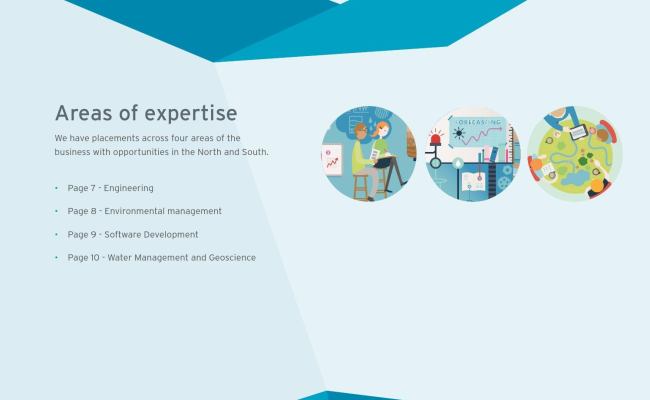
Consulting is a job that involves working with clients to discover the real problems they are facing and then developing solutions. The role requires you understand the causes of problems as well as build trusting relationships. You will need to be flexible, work long hours and manage stress. A career as a consultant is possible if you have all the necessary qualifications.
Qualifications for a job at a consultancy
There are many qualifications needed to be a consultant depending on the company. Some firms require a master's degree in business administration or a related field. Others don't. Although MBA and Ph.D. graduates are highly sought after by some companies, it is not required. Some companies will consider applicants with relevant work experience. For new graduates, it is worth looking into training programmes with large companies.
Consultants must have excellent communication and interpersonal skills. Consultants should be flexible and ready for new challenges. They must also be able to work collaboratively with clients and other stakeholders. Their primary responsibility is to facilitate and maintain productive conversations. They must be able think in a systematic way and be able understand and address the client's concerns.

Flexibility
A flexible job in consulting is becoming more common. Clients are becoming more open to flexible work in their own organizations, which is driving this trend. Jon Williams, cofounder of Fifth Frame boutique consultancy and former senior PwC partner, says that clients are increasingly accepting flexible work. It isn't a new phenomenon, but it is growing in popularity. Flex jobs have become a more viable business model in recent years.
You can set your own hours working in a consulting firm. While you may not work traditional hours, you must meet deadlines for your clients. You can work remotely if you want, but you must still adhere to deadlines.
Long working hours
A consultancy job can be very exhausting. Consultants are often expected to work weekends and long hours, often not allowing for a proper lunch break. Even their evening breaks can be limited to an hour to travel or eat dinner. Some studies show that consultants work much more than their contracted hours.
The length of a consulting job's workweek varies from one region to the next. For example, consultants working in Singapore, Dubai, or Southern Europe have longer work hours than their American counterparts. Consultants in Italy are expected to work from 9am to 11pm weekdays and from 9am to 8pm Fridays. This means that 70 to 80 per cent of weekends are spent on the job. The type of project also plays a role in the number of hours, with shorter projects and last-minute proposals typically requiring longer hours.

Stress
Working in consultancy is stressful - there is no doubt about that. It can feel as though consultants aren't being adequately compensated, even though they are often paid very well. It is possible to feel unpaid due to fear of change in jobs or companies and uncertainty about the future. Although consulting was once a respected profession there has been a recent decline. Many consultants now complain about the same problems that their clients. Changes in how companies conduct business have also had an impact on the way consultants work. The digitalisation of information has made it more accessible and easier for people to access the information they need. Companies are becoming more professional and selective.
Some consultants are so consumed by their work that they are unable to switch off. This may lead to depression or anxiety, which can lead to low motivation and productivity. Consultants spend a lot of time at work, and have little time for family or friends. They can become so focused on work that they have to be available 24 hours a day.
FAQ
What degree do I need to become a consultant?
You can become an expert in any subject by learning the subject thoroughly, then applying what you have learned.
You can learn all you need to know to become a great consulting professional by starting to study now.
If you have a degree but no relevant experience, you may struggle to get hired. You could still apply if you are able to show that you have the same subject knowledge as the people who were hired.
Employers will always search for candidates with real-world experience.
What are the types of contracts available to consultants?
When they are hired, most consultants sign standard employment contracts. These agreements specify how long the consultant will be working for the client and what he/she will be paid.
Contracts may also include details about the specific areas of expertise that the consultant is going to be focusing on as well as how they will be compensated. For example, the agreement may say that the consultant will provide training sessions, workshops, webinars, seminars, etc.
Sometimes, the consultant just agrees to complete certain tasks within a defined timeframe.
Consultants often sign independent contractor contracts in addition to their standard employment agreements. These agreements allow consultants to work independently while still receiving payment.
What happens after the consultant has finished the job?
After the consultant completes their work, he/she will submit a final summary of the results. This report includes the deliverables and project timelines.
Next, you will review the report and determine if the consultant has met your expectations. If the report does not meet your expectations, you have two options: to request changes or to terminate the contract.
How long does it usually take to become an expert consultant?
Your industry and background will determine the length of time it takes. People start work with a few weeks before they find employment.
However, many consultants spend years honing their skills prior to finding work.
Statistics
- 67% of consultants start their consulting businesses after quitting their jobs, while 33% start while they're still at their jobs. (consultingsuccess.com)
- So, if you help your clients increase their sales by 33%, then use a word like “revolution” instead of “increase.” (consultingsuccess.com)
- On average, your program increases the sales team's performance by 33%. (consultingsuccess.com)
- According to IBISWorld, revenues in the consulting industry will exceed $261 billion in 2020. (nerdwallet.com)
- According to statistics from the ONS, the UK has around 300,000 consultants, of which around 63,000 professionals work as management consultants. (consultancy.uk)
External Links
How To
What Does A Typical Day For A Consultant Look Like?
Your work type will determine the length of your day. But, in general, you will spend your time researching, planning and meeting new clients.
You will have many meetings where clients and you can discuss their issues. These meetings may be over the phone via email, on-line, or face-to–face.
Sometimes, you may be asked to create proposals. These are documents that outline your ideas and plans for clients. Before presenting these proposals to clients, you will usually need to discuss them with a colleague or mentor.
After all the preparation and planning, it's time to actually create some content. For example, you could be writing articles, designing websites, creating videos, editing photos, or conducting interviews.
Depending on the scope of the project, you may need to do some research in order to gather relevant statistics or figures. You might need to determine how many customers you have, and whether they buy more than one product.
After gathering enough information, you can present your findings to clients. You may give your findings orally or in written form.
After your initial consultation with clients, you need to keep in touch. For example, you might call them periodically to see how things are going or send emails asking them to confirm that they received your proposal.
While this can be a slow process, it's essential to remain focused and maintain good working relationships with clients.